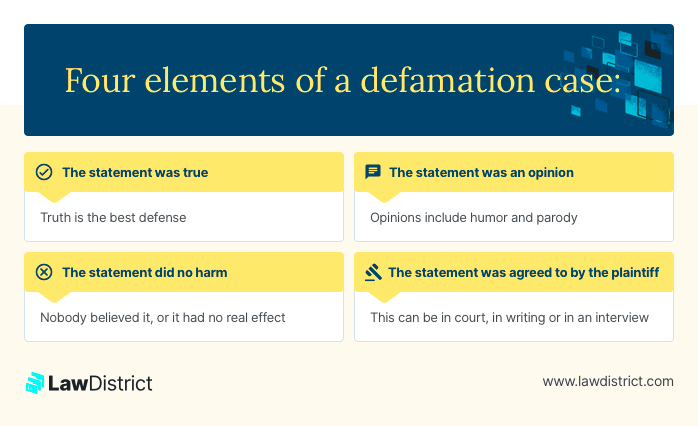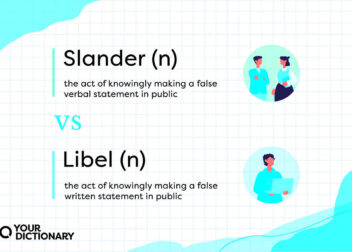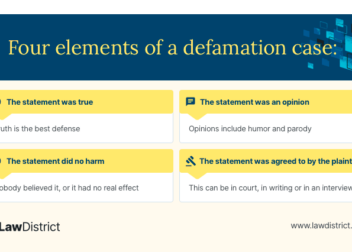Compliance with Defamation and Slander Laws in Colorado
In discussions regarding reputation and false statements, the commonly used legal terms in Colorado are “defamation” and “slander”. Defamation means making a statement which is not true that damages the reputation of another person. Defamation has two forms: slander or spoken defamation, which is a specific subset of defamation. Consequently, it is important for an individual to understand these concepts if he/she intends to be able to deal with the law concerning personal and professional reputations.
Key Elements of Defamation Claims
To establish a defamation claim in Colorado successfully, certain key elements must be fulfilled:
- False Statement: The statement must be false. Truth is an absolute defense against defamation.
- Publication: The statement must be made to a third party, meaning someone other than the person being defamed must hear or read it.
- Injury: The statement must cause harm to the individual’s reputation, leading to potential loss of business, emotional distress, or other damages.
- Fault: The level of fault must be proven. For private individuals, negligence suffices, while public figures must show actual malice.
Recognition of these components assists people and organizations in safeguarding their standing and comprehending their entitlements in possible slanderous circumstances.
Differences Between Defamation and Slander
Defamation refers to all kinds of false statements about someone, while slander pertains to spoken statements. Let’s have a closer look at this:
| Aspect | Defamation | Slander |
|---|---|---|
| Medium | Written or spoken | Spoken only |
| Proof of Harm | Generally requires proof of damages | May not require proof if it’s considered slander per se (e.g., statements about serious crimes) |
| Examples | Newspaper articles, social media posts | Conversations, speeches |
It is important for everybody who may have false statements related legal issues to know such differences.
Defenses Against Defamation Claims
In Colorado, if you are charged with defamation, it’s essential to know that you have different choices of how to defend yourself. Such justifications may help an individual assert that the subject matter of the utterance was true or did not meet the standards required for defamation. Common examples include:
- Truth: The most solid defense is that the statement in question is true. If you can prove that your statement is accurate, you have a strong case against a defamation claim.
- Opinion: If the statement is an opinion rather than a factual claim, it may not be considered defamatory. For example, saying, “I think he’s a terrible leader” is typically protected as opinion.
- Privilege: Certain statements made in specific contexts, such as court testimony or legislative proceedings, may be protected by absolute or qualified privilege.
- Consent: If the person you are speaking about consented to the statement being made, they cannot later claim defamation.
- Public Figure Defense: If the individual is a public figure, they must prove actual malice, meaning the statement was made with knowledge of its falsity or with reckless disregard for the truth.
For those embroiled in defamation cases, understanding these defenses could really prove essential crucial as they assist you in maneuvering through the legal intricacies.
Consequences of Defamation in Colorado
In Colorado, the repercussions of defamation could be dire and that is a very serious matter, affecting personal and pro lives. The penalties applied to someone found guilty of committing this offense range greatly:
- Financial Damages: The defamed party may be entitled to compensatory damages for lost wages, emotional distress, and reputational harm.
- Punitive Damages: In cases where the defamation was particularly malicious, the court may award punitive damages to punish the wrongdoer.
- Injunctions: A court may issue an injunction to prevent further publication of the defamatory statements.
- Legal Fees: The losing party may also be responsible for the legal costs incurred by the winning party, adding to their financial burden.
By recognizing the possible effects, people and companies may mitigate the risks posed by their reputations and steer clear of conflicts that are potentially defamatory.
How to Prove Defamation in Court
To file a lawsuit for defamation is not an easy task. However, if you know what to do, you may be able to win the case without much hassle. This is how you can do it:
- Gather Evidence: Collect all relevant evidence, including documents, recordings, or witness statements that support your claim.
- Document the Statement: Make sure to clearly document the defamatory statement, noting when and where it was made and who heard or saw it.
- Show Harm: Demonstrate how the statement has caused harm to your reputation, whether through loss of business, emotional distress, or other damages.
- Establish Fault: Depending on your status (private individual or public figure), you’ll need to prove the necessary level of fault—either negligence or actual malice.
In this defamation lawsuit, it is essential to present irrefutable evidence by diligently preparing your case to be able to competently argue your case.
The Role of Public Figures in Defamation Cases
In defamation cases, the status of the person being defamed can significantly influence the legal standards applied. Public figures, which include politicians, celebrities, and other notable individuals, have a higher burden of proof compared to private individuals. This distinction is rooted in the principle that public figures have voluntarily exposed themselves to greater public scrutiny.
There are some things that need to be put in place by public figures in order to prove defamation:
- Actual Malice: Public figures must prove that the defamatory statement was made with actual malice. This means showing that the statement was made with knowledge of its falsity or with reckless disregard for the truth.
- Impact on Public Discourse: The courts often prioritize free speech and the public’s right to engage in discussions about public figures, making it harder for these individuals to win defamation suits.
Public figures should be cognizant of these intricacies in defamations suits because they are lending weighty voices to this dilemma on how to protect oneself from defamation while encouraging free speech.
Preventive Measures for Individuals and Businesses
Prevention is better than cure; hence, taking preemptive measures against defamation can help individuals and organizations escape unnecessary time wastage and stress. Below are some real measures to explore:
- Know the Law: Understanding defamation laws in Colorado can help you avoid making statements that could lead to legal trouble.
- Think Before You Speak: Always consider the potential impact of your words before making statements about others. Avoid spreading rumors or unverified information.
- Document Everything: Keep records of communications, especially in a business setting. This can provide protection if disputes arise.
- Educate Employees: For businesses, training employees on appropriate communication can prevent inadvertent defamation.
- Seek Legal Advice: When in doubt, consult with a legal expert to review statements or content before publication.
Implementing those precautionary steps help you to safeguard yourself and your enterprise well from such possible slander lawsuits.
FAQs About Defamation and Slander in Colorado
1. What is the difference between defamation and slander?
Defamation is the general term for false statements that harm someone’s reputation. Slander specifically refers to defamatory statements made verbally, while libel refers to written or published statements.
2. Can I sue for defamation if the statement is true?
No, in Colorado, truth is a complete defense against defamation claims. If the statement is true, it cannot be considered defamatory.
3. What damages can I recover in a defamation case?
You can potentially recover compensatory damages for lost income, emotional distress, and, in certain cases, punitive damages if the defamatory conduct was proven to be malicious or reckless.
4. How long do I have to file a defamation lawsuit?
In Colorado, you typically have one year from the date of the defamatory statement to file a lawsuit, as per the statute of limitations.
5. Are opinions considered defamation?
Generally, opinions are protected under free speech unless they imply false facts. Courts usually consider subjective opinions as non-defamatory.
Conclusion on Navigating Defamation Laws in Colorado
The law surrounding defamation in Colorado is not straightforward, particularly with respect to how it treats public or private figures and the varying standards of proof that apply. Being aware of the main elements of defamation claims, the possible defenses and consequences can go a long way in ensuring that individuals and companies are able to protect their images from any harm. Managers should consider taking proactive steps like staff training and understanding the legal framework to reduce incidences of defamation. Ultimately, when faced with a defamation suit or trying to preserve your good name, being knowledgeable about this difficult field is your greatest weapon.


